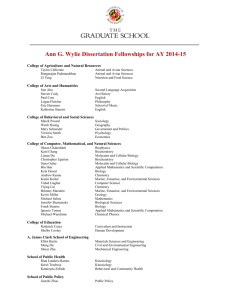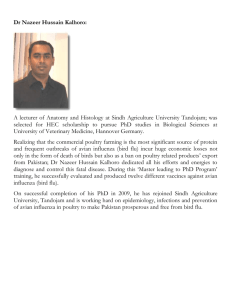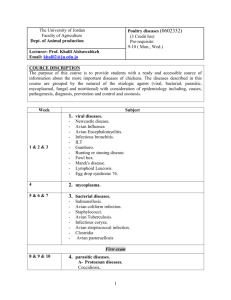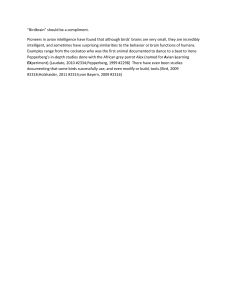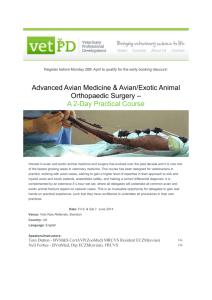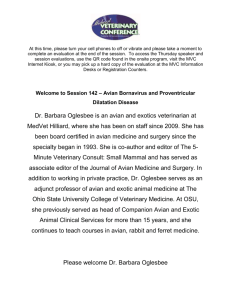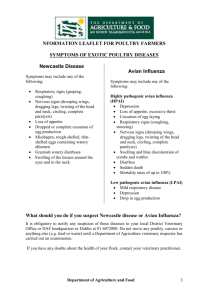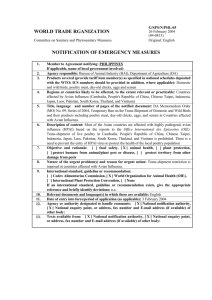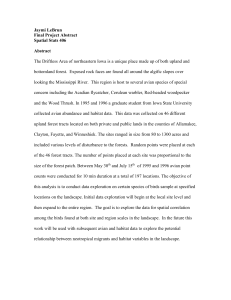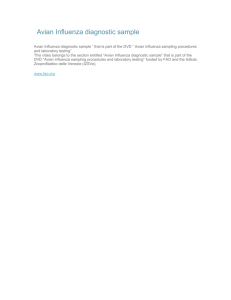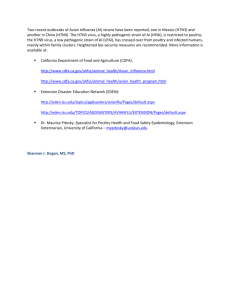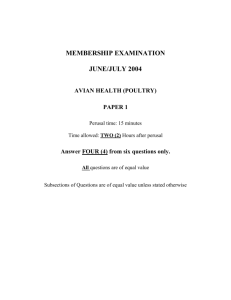New Course Proposal: Avian Biology & Development 2014
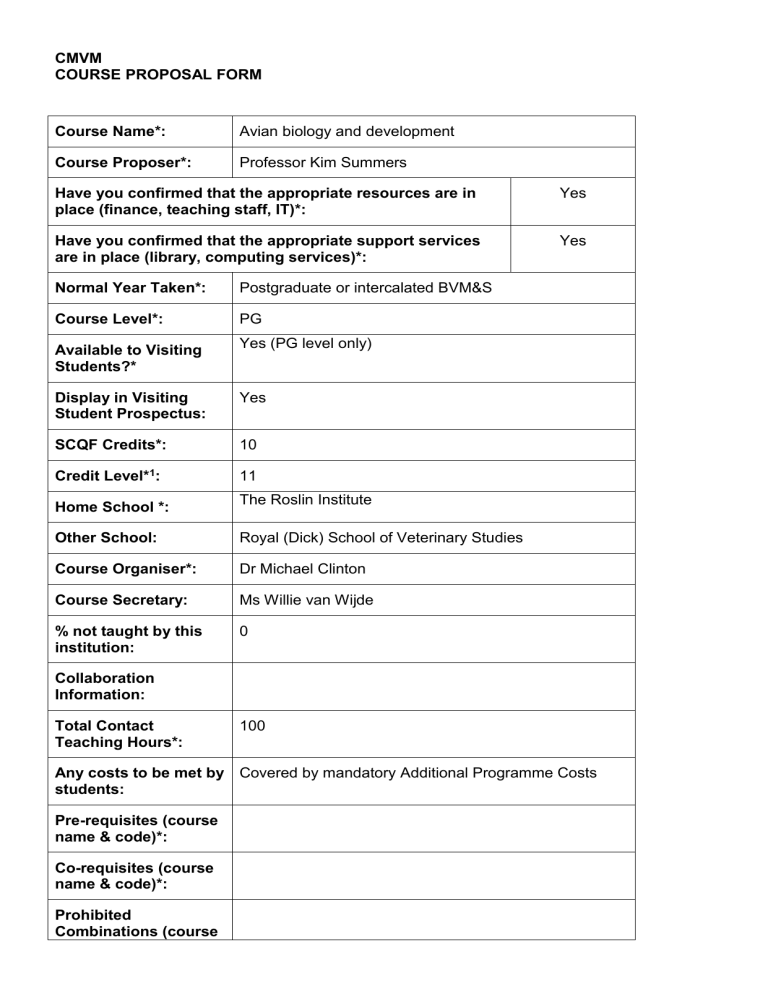
CMVM
COURSE PROPOSAL FORM
Course Name*: Avian biology and development
Course Proposer*: Professor Kim Summers
Have you confirmed that the appropriate resources are in place (finance, teaching staff, IT)*:
Have you confirmed that the appropriate support services are in place (library, computing services)*:
Normal Year Taken*: Postgraduate or intercalated BVM&S
PG
Yes (PG level only)
Course Level*:
Available to Visiting
Students?*
Display in Visiting
Student Prospectus:
SCQF Credits*:
Credit Level* 1 :
Home School *:
Yes
10
11
The Roslin Institute
Other School:
Course Organiser*:
Course Secretary:
% not taught by this institution:
Collaboration
Information:
Total Contact
Teaching Hours*:
Royal (Dick) School of Veterinary Studies
Dr Michael Clinton
Ms Willie van Wijde
0
100
Yes
Yes
Any costs to be met by students:
Covered by mandatory Additional Programme Costs
Pre-requisites (course name & code)*:
Co-requisites (course name & code)*:
Prohibited
Combinations (course
name & code)*:
Visiting Students Prerequisites:
Short Description*:
Keywords 2 :
Fee Code if invoiced at
Course level:
Completed degree at Bachelor level in biological sciences or other relevant discipline
The course aims to provide knowledge and laboratory skills in the area of avian biology, with current and immediate relevance. The course will cover avian biology and development from egg to shed, and include practical experience working with chicken model systems.
CA
Default Course Mode of Study*:
Semester 2
Default Delivery
Period*:
Course Type*:
Standard
Summary of Intended
Learning Outcomes*:
At the completion of this course, the candidate should have specialised knowledge and experience in avian biology and development.
The candidate should:
• be familiar with the stages of development of a bird embryo;
• be aware of the evolution of birds and the place of different bird species;
• understand the role of poultry species in food production;
• understand the role of avian model systems in research into vertebrate development;
• have experience of relevant laboratory techniques;
• understand how this knowledge might be used in industry;
• understand the ethical issues raised by the use of poultry species for production and research.
Special Arrangements:
Components of
Assessment (inc. % weightings)*:
Written assignment(s) 75%
Assessment of scientific note book 25%
Exam Information*
(please remove 2 nd Sit
No examination
if not applicable):
Syllabus/Lecture List:
Study Pattern/Course
Structure:
Benchmark
Statements Assessed:
Roslin Institute 100% Teaching Load* (% taught from each
School):
Reading Lists:
Professor John Hopkins Convenor of Board of
Examiners:
